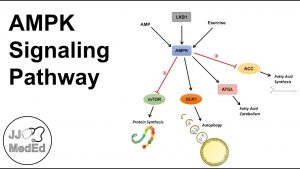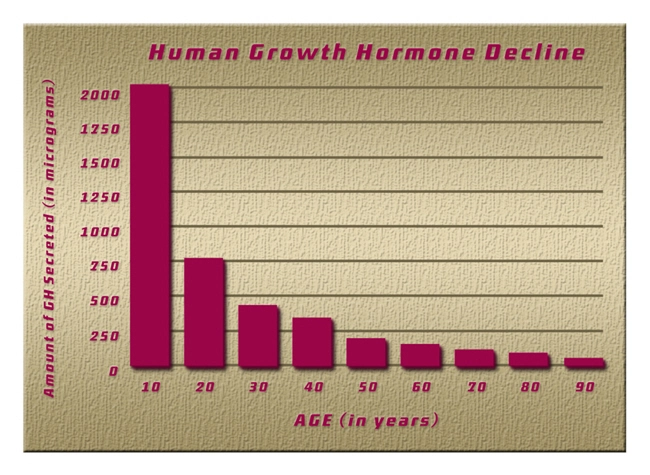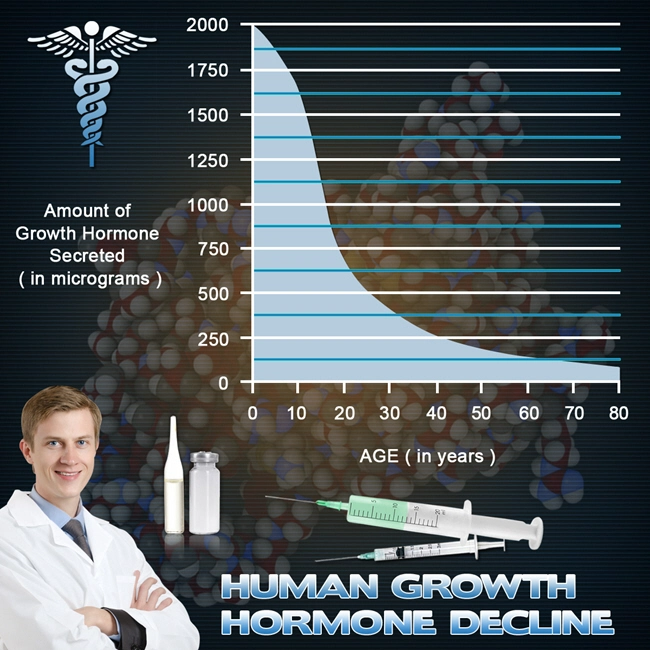
Video Link: https://vimeo.com/285652345
Video Download: Click Here To Download Video
Video Stream: Click Here To Stream Video
Video Link: https://vimeo.com/285652217
Video Download: Click Here To Download Video
Video Stream: Click Here To Stream Video
Is Metformin An Anti-Aging Drug?
Possibly!
Keep Reading and Learn the Facts About This Exciting Breakthrough
The first clinical trial of a potential “anti-aging, life-extension” drug - metformin anti-aging, is now underway. The American Federation for Aging Research (AFAR) has jumped through numerous bureaucratic hoops to receive approval for the study from the Food and Drug Administration (FDA).
The study is called Targeting Aging with Metformin Trial (TAME) and is currently seeking funding to keep the trial going.
 Dr. Nir Barzilai is the director of the Insititute for Aging Research at the Albert Einstein College of Medicine in the Bronx. He is also the driving force behind the TAME study.
Dr. Nir Barzilai is the director of the Insititute for Aging Research at the Albert Einstein College of Medicine in the Bronx. He is also the driving force behind the TAME study.
Dr. Barzilai aims to demonstrate to the FDA that metformin is efficient at slowing aging and preventing disease and therefore should be labeled as an “anti-aging” drug.
The TAME study plans to recruit around 3,000 participants in the 65-to-80-year old age range who are suffering from or at high risk of developing cancer, cardiovascular disease, or dementia.
The goal is to slow aging and prevent and reverse disease.
Metformin has been selected for the anti-aging trial since research has concluded it may block or at least lessen many of the conditions that accelerate aging.
Professor Gordon Lithgow of the Buck Institute on Aging and one of the study researchers said: “If you target an aging process and you slow down aging then you slow down all the diseases and pathology of aging as well...that’s revolutionary. That’s never happened before...but there’s every reason to believe it’s possible.”
Professor Lithgow further added that: ”If we were to cure all cancers it would only raise life expectancy by around three years because something else is coming behind the cancer. But if we could slow down the aging process, you could dramatically improve how long people can live.”
Stephanie Lederman, executive director of the American Federation for Aging Research, added:”The perception is that we are all looking for a fountain of  youth. We want to avoid that; what we’re trying to do is increase health span, not look for eternal life.”
youth. We want to avoid that; what we’re trying to do is increase health span, not look for eternal life.”
The TAME trial began in 2015 and will run through 2020.
Stopping aging may indeed sound too good to be true as well as belonging to the realm of science fiction. But scientists believe it is a possibility, and perhaps not a remote one.
Metformin has demonstrated the ability to slow aging in animals, and the TAME trial will determine if it works as well in humans.
Is aging inevitable? Maybe. Or may be not. All of our cells are equipped with a DNA blueprint which theoretically could keep our bodies operating smoothly for eons.
The problem is that to keep us going our cells must continually divide billions of times, and the more they divide, the more potential for things to go wrong due to wear and tear. Over time cells mutate, and usually not in a beneficial way.
As a result, when diseases like cancer strike, the cells are too debilitated to fight off the mutations, and cancerous tumors develop and increase in both size and lethality.
Metformin fights this hideous development since it increases the number of healthy oxygen molecules that flood the cells. This increase adds energy to the cells, which boosts longevity by allowing the cells to “clean house” more efficiently.
What is Metformin?
Metformin was first synthesized in 1929, clinically developed in the 1950s, and approved for use in England in 1957. It was made available to type II diabetics soon after. In 1995 Metformin was recommended for use by type II diabetics in the United States.
Metformin is a derivative of a compound in the flower Galega officinalis, also known as French lilac.
A few years ago the television news show 60 minutes aired interviews with researchers touting the anti-aging benefits of the supplement resveratrol. Studies have concluded that metformin increases insulin sensitivity by acting on similar enzyme pathways as resveratrol.
How Metformin Works
The key to understanding the excitement of metformin is the effect it has on a cellular enzyme called adenosine monophosphate-activated protein kinase, commonly shorted to AMPK.
Metformin intensifies the action of AMPK. This is crucial since AMPK activation promotes the healthy aspects of calorie restriction, which, according to many researchers, is the most proven method of slowing and even reversing the symptoms of aging.
AMPK causes fat- and sugar-burning which prevents their accumulation. This produces the ideal environment in the body for optimal metabolic balance.
 When taken, metformin goes directly to the liver and interferes with the process by which the liver cells break down and dose nutrients with oxygen used for energy.
When taken, metformin goes directly to the liver and interferes with the process by which the liver cells break down and dose nutrients with oxygen used for energy.
Too much of this interference would entirely shut down the oxygen, with fatal results.
But metformin only disrupts the first step in this multi-step operation of energy conversion from nutrients to oxygen.
One researcher characterized this process as water sprinkled on flames -- the fire slows but is not extinguished.
It may be possible that metformin is effective against cancer by slowing energy production, which lowers inflammation. Inflammation has been called by many research scientists as the root cause of the majority of diseases.
This process has a direct benefit. When liver cells are energy stressed, they produce less glucose, which reduces the workload of the pancreas. The job of the pancreas is to pump out insulin, which in turn signals the cells to gather up and store nutrients.
When the pancreas has a lower workload, less insulin is released.
The formula is simple. Lower glucose = less insulin. Excess insulin has been directly linked to a vast array of diseases, including aging.
The connection between aging, glucose, and insulin was not terribly difficult for researchers to make. Insulin tells the cells that nutrients are accessible. This instructs the cells to grow and multiply.
When insulin levels nose-dive, the cells begin to conserve energy by lowering their growth and activity.
This conservation allows survival during periods of famine and may explain the life-extending ability of low-calorie diets.
Metformin produces effects resembling a low-calorie diet, and this may explain many of its health benefits.
Metformin’s Benefits
Many researchers have concluded that metformin may have the ability to slow the development of debilitating diseases. What it won’t do is significantly extend the human lifespan for hundreds of years.
However, it may be able to allow us to live in good health for more extended periods until age-halting and age-reversal technologies become safe, widely available, and affordable.
The problem with AMPK is that aging causes its activity to plummet, which opens the door for accelerated aging and all of its accompanying afflictions such as cancer, obesity, cardiovascular disease, and cognitive impairment.
By slowing the aging process, many of these severe, life-threatening diseases will have a harder time emerging. By boosting AMPK activation, metformin can be a potent anti-aging weapon.
a potent anti-aging weapon.
Metformin affects the body similar to calorie restriction (CR), which has proven to prolong life in animal tests. By lowering the insulin response and thus the risk of vascular problems, obesity, and diabetes, metformin should have the same effect in humans.
In the correct amounts insulin is a life-sustaining agent for the body’s growth and repair. Again, in the proper measures.
Too much insulin is linked to type II diabetes, atherosclerosis, high blood pressure, cancer, and Alzheimer’s Disease.
Excess insulin promotes inflammation, which is the proximate cause of a broad range of health problems like the ones mentioned earlier.
Animal studies have concluded that reducing insulin lowers inflammation. This is likely to be true in humans as well since metformin has anti-tumor effects on a broad range of cancers.
Metformin’s benefits are logical. The drug increases the body’s insulin sensitivity, which rids the body of excess sugar, thus delivering a broad range of health benefits.
Astonishingly, half of all American adults suffer from type II diabetes or prediabetes. Both the financial and human costs of these terrible illnesses are immeasurable. If metformin can only reduce these numbers, it will be incredibly beneficial.
But metformin holds out the promise to do more than help cure these two diseases...way more.
Specifically, metformin:
May reduce cancer risk. There are, of course, no cures or proven guaranteed ways of preventing cancer. However, it is a medical fact that people with diabetes have a higher chance of developing cancer than non-diabetics. A study focused on head and neck cancers revealed that people with diabetes treated with metformin has a 46% decrease in risk of developing these diseases as opposed to non-diabetic patients who were not taking metformin. In a startling and unexpected statistic, 86% of studies of metformin and cancer concluded that metformin slowed cancer development with no adverse side effects.
May protect from cardiovascular disease. A primary cause of heart disease is atherosclerosis, or what is commonly referred to as “hardening of the arteries.” This condition results from the oxidation of LDL cholesterol (“the bad cholesterol”) and the buildup of that oxidized fat in the walls of the arteries. This damages the endothelium, the sensitive inner lining of those walls. When metformin recharges AMPK, these conditions are often unable to inflict severe harm to the arteries. The result is cardiovascular protection.
Has been shown to guard against the breakup of mitochondria in the endothelial. As with oxidized fat, this rupture of mitochondria interferes with the action of the endothelial cells, which raises the risk of atherosclerosis. Metformin helps prevent this unwanted development.
Helps reduce blood pressure. A 2016 study showed a substantial drop in systolic (top number) in non-diabetic folks using metformin. This was especially true for study participants who were obese or suffered from diminished glucose tolerance.
Lowers body weight and fat storage. The key to metformin’s ability to reduce weight and blowtorch fat is, once again, AMPK activation. This is due to AMPK’s ability to regulate metabolism and ramp up youthful cellular activity. For example, AMPK scorches fat instead of accumulating it. AMPK also speeds up the cells ability to remove toxins and excess sugar.
Acts as a neuroprotector. Again, this benefit is directly linked to AMPK activation. As mentioned earlier, AMPK speeds up the elimination of toxins throughout the body. This includes the accumulation of tau and beta-amyloid, known causes of brain cell death. Studies have shown that metformin slashes the adverse effect of one of the enzymes that produce beta-amyloid proteins. A 2016 study concluded that a dose of 1,000 mg of metformin twice daily for one year boosted memory in older adults with mild cognitive impairment.
Benefits women with polycystic ovary syndrome (PCOS). A study concluded that metformin use for six months reduced body mass index (BMI), testosterone, luteinizing hormone (LH), and improved menstrual cycle regularity, with nearly half of the study participants returning regular menstruation.
Metformin’s Possible Side Effects
Generally, metformin is considered safe and is usually well-tolerated by the vast majority of users. However, as with all prescriptions, there are a few possible adverse side effects you need to be aware of:
Metformin has occasionally blocked the absorption of vitamin B12, which could cause a rise in homocysteine, a toxic substance which can clog arteries and increase the chance of cardiovascular problems. If you are taking metformin remember to take at least 300 mcg B12 in the form of methylcobalamin, which is the most bioactive form of B12. Also, don’t forget to check your homocysteine levels.
Digestive system distress, especially diarrhea and indigestion.

A metallic taste.
A lactic acid buildup, which can cause pain and muscle cramping.
A headache
Heartburn
Always check with your doctor to make sure metformin is safe for you.
The Food and Drug Administration (FDA)
Previously, the FDA has not even considered aging to be a disease, much less a treatable disease. This is crucial because the agency does not approve any drug that does not treat a specific medical condition.
Also, even if the FDA did recognize aging as a disease, in the interests of public safety, they would still require proof that the drug had actually been effective in slowing aging – not an easy task to accomplish.
But that is changing. Here’s a quote concerning the TAME study by Dr. Robert Temple, deputy director at the FDA: “Their hope is that a wide variety of age-related problems, loss of muscle tone, dizziness, falls, dementia, loss of eyesight, all of those things [sic]. That would be something never done before. If you really are doing something to alter aging, the population of interest is everybody. It surely would be revolutionary if they can bring it off.”
This is the first-ever inkling that the FDA is open to considering aging to be a treatable condition.
What Researchers and Medical Professionals are Saying About Metformin
Here are a few direct quotes from medical professionals quoted in various international news sources:
“Although it might seem like science fiction, researchers have already proven that the diabetes drug metformin extends the life of animals, and the Food and Drug Administration in the US has now given the go-ahead for a trial to see if the same effects can be replicated in humans.”
 “I have been researching aging for 25 years, and the idea that we would be talking about a clinical trial in humans for an anti-aging drug would have been thought inconceivable…Twenty years ago aging was a biological mystery. Now we are starting to understand what is going on.”
“I have been researching aging for 25 years, and the idea that we would be talking about a clinical trial in humans for an anti-aging drug would have been thought inconceivable…Twenty years ago aging was a biological mystery. Now we are starting to understand what is going on.”
“Scientists think the best candidate for an anti-aging drug is metformin, the world’s most widely used diabetes drug, which costs just 10p [15 cents] a day. Metformin increases the number of oxygen molecules released into a cell, which appears to boost robustness and longevity.”
“If we can slow aging in humans, even by just a little bit, it would be monumental. People could be older, and feel young.”
“This would be the most important medical intervention in the modern era, an ability to slow aging.”
Dr. Simon Melov of the Buck Institute for Research on Aging added his experienced opinion: “You’re talking about developing a therapy for a biological phenomenon which is universal and gives rise to all of these diseases. And if you’ve got a therapy for this thing, these diseases just go away.”
“Metformin may have already saved more people from cancer deaths than any other drug in history” -Lewis Cantley, director of the Cancer Center at Weil Cornell Medicine.
Recommended Metformin Dosage
A daily dosage of 1,000 to 2,550 mg has been shown to produce metformin’s benefits. However, it is strongly advised that you start a metformin regimen with smaller doses and gauge your body’s reactions.
smaller doses and gauge your body’s reactions.
Be sure to work closely with your physician and have regular blood tests.
Our clinic is dedicated to keeping our clients informed on all of the cutting-edge anti-aging, life-extending treatments, and breakthroughs. And that includes metformin.
We have the experience and know-how to combine various longevity treatments designed specifically for you.
References
Will Metformin Become the First Anti-Aging Drug?
Metformin in Longevity Study (MILES).
Contact Us Today For A Free Consultation
Dear Patient,
Once you have completing the above contact form, for security purposes and confirmation, please confirm your information by calling us.
Please call now: 1-800-380-5339.
Welcoming You To Our Clinic, Professor Tom Henderson.

- Finally! A Safe, Effective and Easy Way to Slow Aging: Genotropin HGH Product [Last Updated On: February 17th, 2025] [Originally Added On: June 24th, 2020]
- A new study says Human Growth Hormone (HGH) can reverse aging! [Last Updated On: October 13th, 2024] [Originally Added On: June 30th, 2020]
- What Metabolism Reveals About Aging and Mortality [Last Updated On: February 17th, 2025] [Originally Added On: December 1st, 2020]
- Stanford University: A Way to Reverse Age-Related Health Issues is a Real Possibility [Last Updated On: July 14th, 2024] [Originally Added On: February 4th, 2021]
- The Six Biggest Hormone Disruptors to Avoid [Last Updated On: September 7th, 2024] [Originally Added On: May 16th, 2021]
- Laugh It Up! Boost Your HGH FAST [Last Updated On: July 13th, 2024] [Originally Added On: June 7th, 2021]
- Why Poor Sleep Quality is a Serious Detriment to Your Health [Last Updated On: September 5th, 2024] [Originally Added On: June 12th, 2021]
- Scientists Bold Prediction: We'll Soon Extend Life Well Beyond 120” [Last Updated On: June 23rd, 2024] [Originally Added On: August 24th, 2021]
- Can My Hormones Make Me Fat? [Last Updated On: July 12th, 2024] [Originally Added On: September 1st, 2021]
- Testosterone Therapy may protect Telomeres and slow aging [Last Updated On: February 16th, 2025] [Originally Added On: September 14th, 2021]
- Minoxidil: A potential cure for baldness? [Last Updated On: October 7th, 2024] [Originally Added On: November 16th, 2022]
- The Quest for the Secret of Longevity [Last Updated On: August 30th, 2024] [Originally Added On: November 24th, 2022]
- Jeff Bezos Wants to Stop Aging! [Last Updated On: September 2nd, 2024] [Originally Added On: November 24th, 2022]
- Is it possible to live to 180? Perhaps! [Last Updated On: October 19th, 2024] [Originally Added On: November 29th, 2022]









